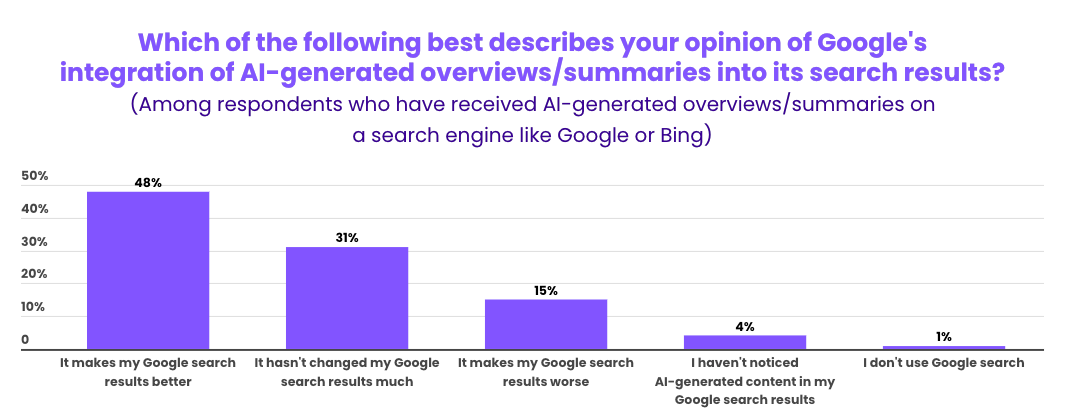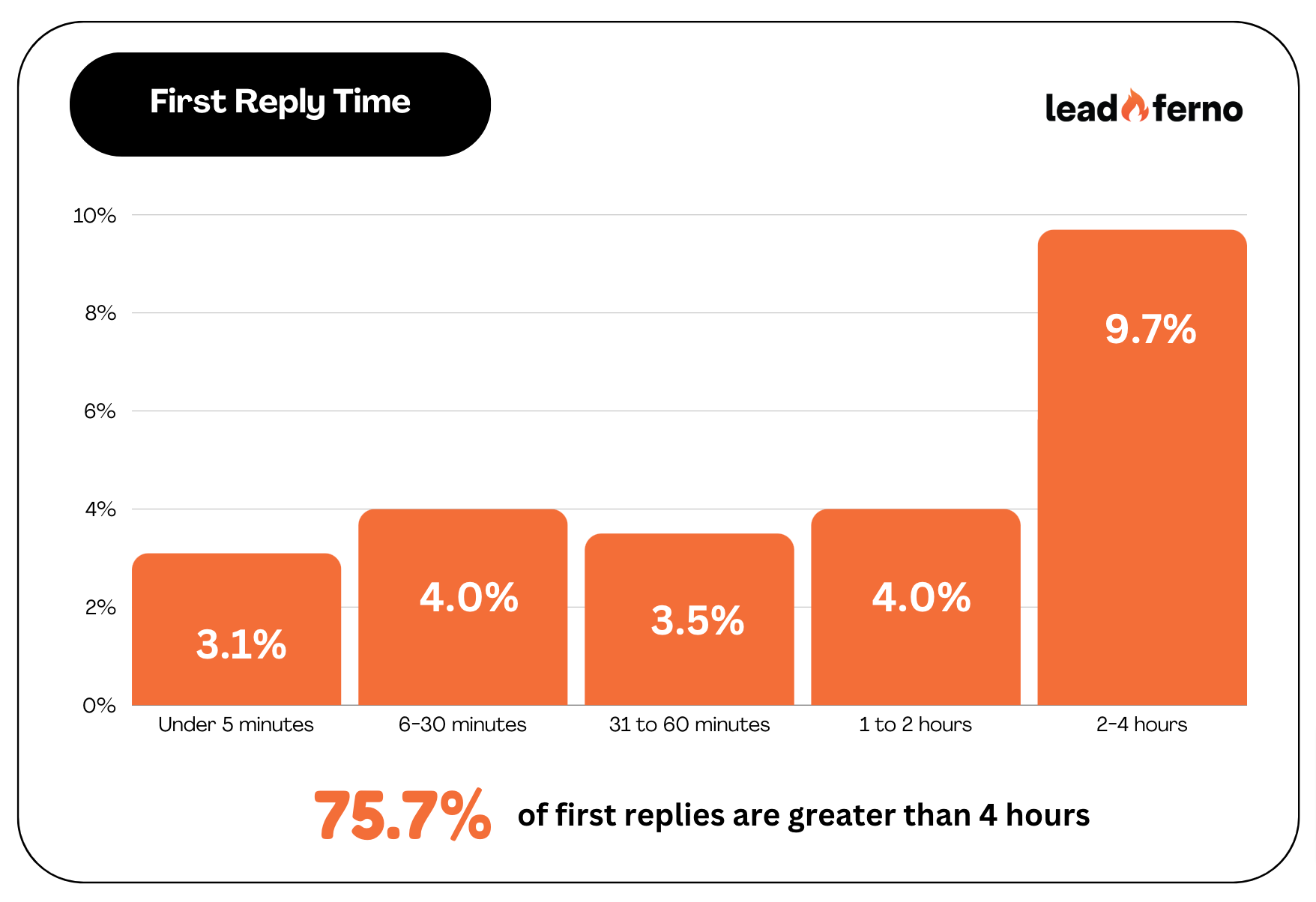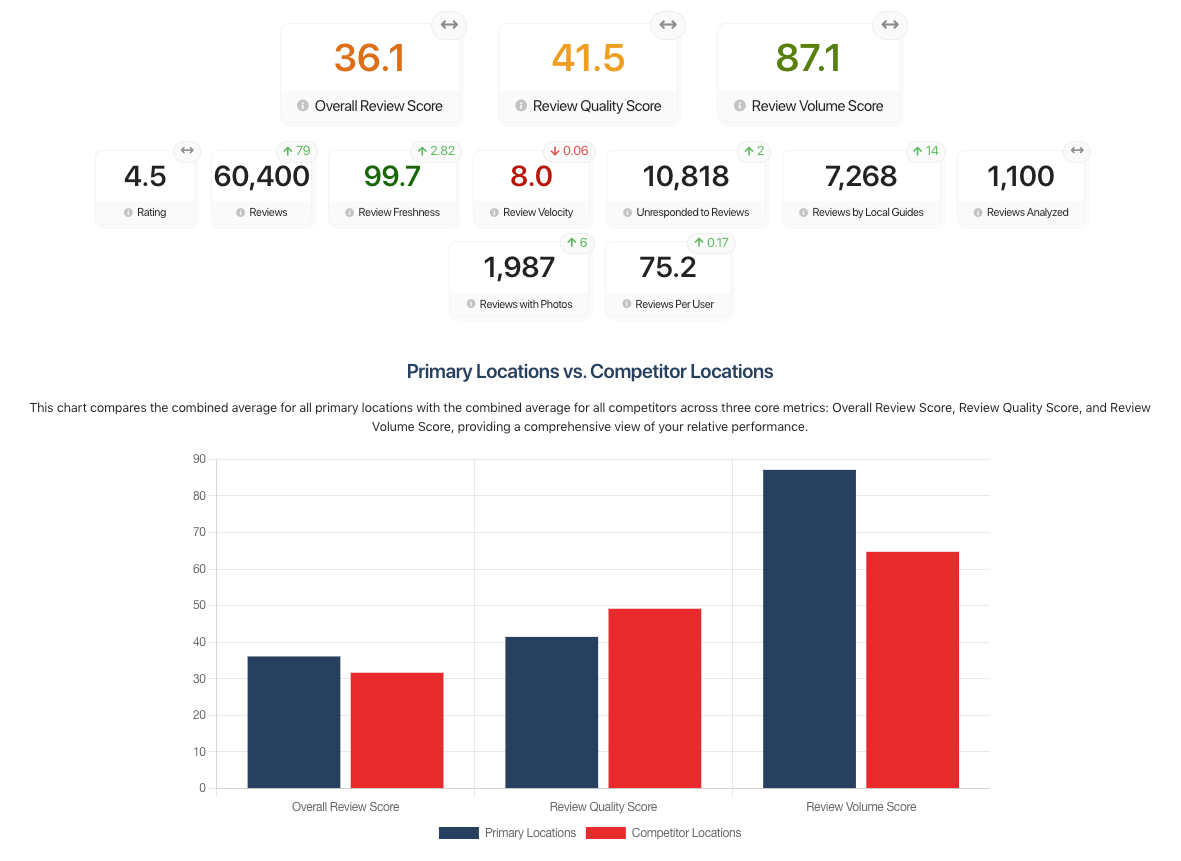AI Use Hurts Google, SMB Response Times, Local AI Review Tool

Heavy AI Fans Use Google Less
Google has repeatedly said users like AI Overviews. At least one survey seems to partly support that claim. But that survey also has bad news for Google. To assess consumer perceptions of AI in search, Tinuiti polled 1,000 US adults who were "at least slightly familiar with AI technology in June 2024." Just under half (48%) who had "received AI summaries felt they improved Google’s search results," while the remaining 52% had various other responses, including 15% who said they made search worse. Only 40% of all respondents were confident they'd seen AI Overviews and 29% weren't sure. The rest either had not or didn't remember. Among those who thought AI made search worse, inaccuracy and general distrust were the main two reasons. Here's the more concerning news for Google: When asked whether their search usage was affected by using AI platforms such as ChatGPT and Perplexity, "29% of respondents said yes." Among heavier AI users – those using AI tools at least monthly – "45% said they are using traditional search engines less." And for daily AI users, "that rate jumps to 62%."

Our take:
- Asked whether they would click through to a site vs. getting their answer directly from AIOs, 44% preferred clicking a link to a website.
- However, younger users were less inclined to click and preferred the AI answers, at least conceptually.
- The survey confirms what we know from anecdotal information: the more you use AI, the less you tend to use Google.
Dismal SMB Lead Response Times
Survey data consistently shows that the top challenge for local businesses is customer acquisition. Yet, many businesses are leaving money potentially "on the table," by ignoring or not responding to inbound inquiries in a timely way. That's a key finding from a new "mystery shopping" study conducted by LeadFerno. The company identified 225 top-ranking small businesses (SMBs) in three verticals and submitted "buying focused" inquiries to their website contact forms. These were "bottom of the funnel" sales inquiries and appointment requests. The SMBs were from home services, professional services and healthcare. Roughly 43% of contact submissions never received any response. The fastest response happened in an impressive two minutes but the longest took over 6 days. Roughly 11% of responses happened in under an hour. The average response time was just under 18 hours. Nearly 85% of submissions didn't generate an auto-reply email confirmation. And 66% of businesses who responded only made one follow-up attempt. Home Services had the best reply rate, followed by Healthcare and Professional Services. But in each case, the majority didn't respond.

Our take:
- There are many potential explanations for the failure to respond or respond in a timely way. But there are really no excuses.
- Part of this is a technology problem and part of it is a culture/process problem. But it's kind of astonishing nonetheless.
- Time to response is a key factor in whether a business will get the job. It's amazing that's not more intuitive for these business owners.
Local Falcon 'Reviews Analysis'
Local Falcon is introducing a new AI-based review analysis tool to complement its popular local rankings product. It doesn't help businesses solicit or generate more reviews or respond to reviews, but offers deeper review insights using AI, including of competitors' reviews. Designed to work for both SMBs and enterprises, the objective is to provide more actionable insights. The tool compares a company's top three competitors, based on Local Falcon's ranking position understanding, and looks at the 100 most recent GBP reviews for each business. It can also analyze "up to 250 business locations and their respective competitors." It then scores each business on review recency, frequency and quality. There's an executive summary, which offers a set of recommendations and a kind of competitive SWOT analysis. The tool can also identify reviews that have not been responded to (probably most of them) and flag spam reviews. The pricing is $19 per location, which CEO David Hunter says is very aggressive and less than rivals' pricing.

Our take:
- The product has just been rolled out and Hunter is receiving feedback from early users (agencies).
- There were a number of obvious feature extensions that he suggested were on his roadmap. But he wants to collect more feedback first.
- There are also plans for an AI bot so that users can ask questions about the data.
Recent Analysis
- Near Memo episode 162: Expanding local results, cluttered SERPs reduce organic traffic, AI overviews make it worse.
- Local Search Is Evolving, Here's Why You Need to Pay Attention, by Mike Blumenthal.
- ICYMI: Self-Preferencing Behind Google Maps' Rise, by Greg Sterling.
Short Takes
- Moz: 18 local search developments from Q2 2024.
- Google tries to disclaim responsibility for Business Profiles.
- LSAs coming to Google Maps on iOS. GBP reviews will be used.
- Google automates lead credits for Local Services Ads.
- The "second page" of Google returns – no more continuous scroll.
- Potential new layout for AIOs that puts the "link boxes" above the text.
- Use of clickstream data boosts brands in SERPs, not quality.
- More volatility ahead as Google struggles to improve rankings.
- Google Cloud has a data plan to minimize hallucinations.
- Amazon thinking about $5 to $10 monthly fee for AI-upgraded Alexa.
- AI frenzy drives up Amazon's value beyond $2 trillion.
- Reddit now more important for reputation management.
Listen to our latest podcast.

How can we make this better? Email us with suggestions and recommendations.

